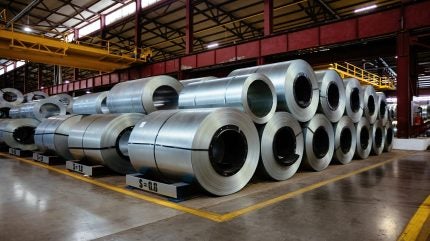
The Association of European Producers of Steel for Packaging (APEAL) has confirmed that its members have completed the REACH Authorisation process for chromium compounds.
This step ensures the continued supply of European steel for packaging while transitioning to chrome-free passivation alternatives.
APEAL members have been granted time-limited authorisation to use chromium trioxide and sodium dichromate in the passivation of electrolytic tinplate (ETP) until the end of 2027 and in the manufacture of electrolytic chromium-coated steel (ECCS) until the end of 2028.
The authorisations, tailored to individual application strategies, mark a critical juncture for the packaging manufacturing landscape.
The European Commission (EC) has set deadlines of 2027 and 2028, with no possibility for extension, indicating a shift towards a restriction process for these compounds.
Supply chain partners are encouraged to adopt the new solutions promptly to ensure a smooth transition from chromium VI compounds.
The inclusion of chromium VI compounds in REACH Annex XIV, with a date of 21 September 2017, initiated a stringent authorisation process.
The EC has identified suitable alternatives within the EU and has imposed strict conditions on authorisation holders.
These conditions include documenting efforts to replace chromium VI compounds, convincing customers to adopt alternative solutions, and taking all necessary steps to reduce risks to workers.
The alternative technologies developed by APEAL members are designed for both ETP and ECCS, which are now being qualified by stakeholders.
These alternatives ensure product and consumer safety and comply with global food contact regulations.
By adopting these solutions, APEAL members demonstrate their commitment to maintaining high standards and regulatory compliance in European manufacturing.



